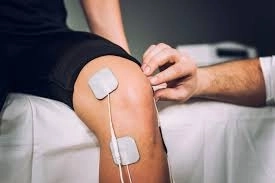
The Benefits of Electrotherapy in Treating Nerve and Muscle Injuries
Published on: 2025-06-18 | Written by: I Move Clinic Dr. Ahmed Mohamed Sabiq for Physical Therapy
In the modern world of physiotherapy, electrotherapy has become one of the most effective techniques for treating nerve and muscle injuries. In this article, Prof. Dr. Ahmed Mohamed Sabeq, Professor of Physiotherapy, explains how electrical stimulation can scientifically and safely accelerate healing and improve quality of life.
What Is Electrotherapy?
Electrotherapy involves the use of low-frequency electrical pulses to stimulate affected nerves and muscles. It is applied using specialized devices that activate nerve cells and enhance muscle responsiveness, thus aiding recovery.
Benefits of Electrotherapy
According to Prof. Dr. Ahmed Mohamed Sabeq, electrotherapy offers a wide range of benefits in nerve and muscle injury cases, including:
-
Improving nerve conduction and activating peripheral nerves
-
Reducing pain caused by inflammation or nerve irritation
-
Restoring muscle strength after atrophy or disuse
-
Enhancing blood circulation and cell nutrition
-
Preventing muscle spasms and contractions
-
Speeding up post-surgical or post-fracture rehabilitation
Conditions Treated with Electrotherapy
| Condition | How Electrotherapy Helps |
|---|---|
| Peripheral nerve injuries | Stimulates and reactivates nerve function |
| Muscle atrophy after stroke | Restores strength and improves motor response |
| Chronic muscular and nerve pain | Reduces pain and enhances circulation |
| Facial nerve palsy (Bell’s palsy) | Accelerates healing and improves facial movement |
| Spinal cord injuries | Supports weak muscles and stimulates signals |
When Will Results Appear?
According to Prof. Dr. Ahmed Mohamed Sabeq, noticeable improvement can occur within several sessions, depending on the severity of the injury and the patient’s response to treatment. Commitment to regular sessions and proper follow-up greatly enhances healing outcomes.
Is Electrotherapy Safe?
Yes. Prof. Dr. Ahmed Mohamed Sabeq confirms that electrotherapy is entirely safe when performed under professional supervision using certified equipment. When applied correctly, it does not cause side effects or complications.
When to See a Physiotherapist?
Prof. Dr. Ahmed Mohamed Sabeq recommends consulting a physiotherapy specialist if you experience:
-
Weakness or numbness in limbs
-
Chronic nerve-related pain
-
Muscle stiffness or atrophy
-
Difficulty moving after injury or surgery

